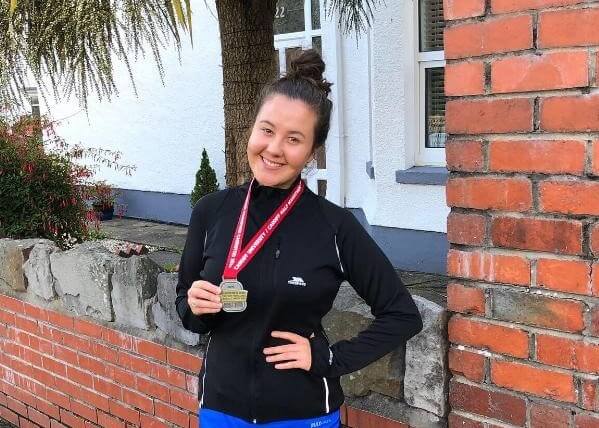
Hi- I’m Sophie and I’m the Legal Entitlements and Problem Solving (LEaP) Project Coordinator. The LEaP Project aims to provide information and support to families who are experiencing difficulties in accessing health, social care and other services.
I have been working at Cerebra since August and have already in this short time seen first-hand the great difficulties that families with disabled children face when trying to access crucial support services.
I have always been extremely passionate about helping individuals fight their legal battles against public bodies and after seeing the amazing work and research Cerebra do to help improve the lives of disabled children and their families, I was absolutely delighted to join the team.
Prior to working for Cerebra, I specialised in medical negligence law helping individuals through the legal process against NHS Trusts in cases where individuals were alleging negligence by a medical professional (such as delay in diagnosis or wrong site surgery). I also worked at a law firm which specialised in NHS Continuing Healthcare. This involved helping families challenge the NHS in cases where continuing health care funding was being denied where the individual’s health and social care needs did in fact warrant funding by the NHS.
My role as LEaP Project Co-ordinator is to respond to individual requests from parents and carers with relevant information and support to help them navigate the complexities of the social and health care systems and to overcome the barriers they are facing. Some examples of requests that we receive from families include free school transport refusals, delays in providing necessary support services such as short breaks, and difficulties with receiving Disabled Facilities Grants.
Another part of my role is to manage referrals to the School of Law at University of Leeds for information and research purposes. Individual requests from families are stored on Cerebra’s database enabling us to establish common and reoccurring trends. These trends help us to understand some of the main difficulties families are facing in accessing support services and prompt the law students’ research topics and our information resource materials.
We endeavour to circulate vital information to as many families as possible across the country to empower individuals to challenge unfair or unlawful decisions made by public bodies. We currently provide this information through our parent guides, template letters, research papers, factsheets and myth busters. We also run various workshops throughout the UK to disseminate information.
We hope that our work will influence local authorities to become much more transparent and helpful when approached by families with disabled children seeking help. We regularly review local authority policies and practices which are confusing, contradictory and sometimes unlawful. We endeavour to hold these particular authorities accountable for their faults and call for change where necessary. We also aim to bring about changes to particular government guidance to ensure the documents are straightforward and clear for public bodies and families of disabled children.
You can find out more about our Legal Entitlements and Problem-Solving (LEaP) Project and contact them if you would like to receive help here.








My daughter was born with microcephaly. she has profound, multiple and complex disabilities and health issues. She weighs 35Kgs is in nappies, unable to position herself at all, epileptic, never learned to chew, had only a breast feeding suck ability and is now fed by pump into her jejunum follow the breakdown of her digestive system. Her developmental assessment was stated to be 33weeks. Both she and I are in a life threatening situation after some years of suffering from unlawful behaviour and stress imposed by our health and social care teams.
we have a particular issue concerning the administration of our CHC and PHB assessment and provision. I have tried for about 5 years to receive advocacy and support without success. Almost entirely the only interest in CHC issues is generated about the nursing/care home residents, their fee charges and the possibility of available finance; all of which means that legal services are able to earn an income for their legal provision. A financially poor single mother and daughter combination is of little interest, even though this is the same guidance and legislation.
I would very much like to speak with you about this because these are issues that will undoubtedly affect families with children who may not realise what is ahead for them. I believe that my information may be of value to you all.
My daughter is not under 16 years but my experiences should be passed on to both families and advocates for their benefit.
Thanks for getting in touch. Drop us an email at [email protected].